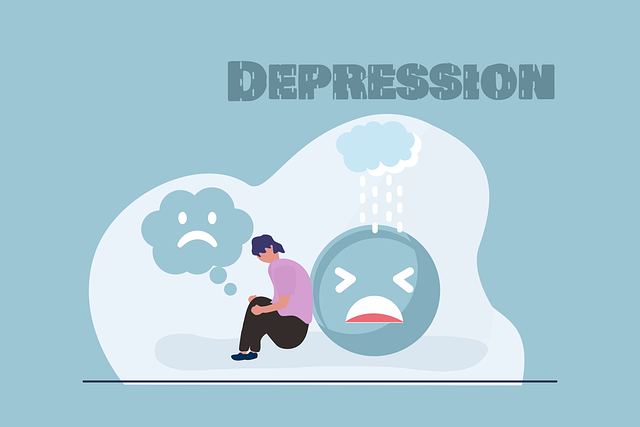Westminster Gender Identity Therapy (WGIT) offers a comprehensive approach to treating substance abuse by addressing its link with mental wellness. They provide tailored interventions through assessments, focusing on proactive strategies like journaling, conflict resolution, and coping skills development. By integrating these techniques into daily life, individuals gain resilience against triggers and enhance overall well-being. WGIT's specialized services include individual therapy, group support, trauma support, and public awareness campaigns, revolutionizing care with a unique understanding of transgender and non-binary experiences. Building personal resilience through mindfulness, stress management, and social support networks is key, fostering a culture of proactive risk mitigation and long-term recovery.
Substance abuse poses significant risks to individuals and communities, but proactive strategies can mitigate these dangers. This comprehensive guide explores a multi-faceted approach to risk reduction, from understanding the complexities of substance abuse and its underlying causes to implementing effective personal resilience-building techniques. We highlight innovative practices like Westminster Gender Identity Therapy, showcasing unique support methods. Additionally, we emphasize the power of community networks and professional treatment options, offering a holistic roadmap to recovery and reduced risks.
- Understanding Substance Abuse Risks: A Comprehensive Overview
- Westminster Gender Identity Therapy: A Unique Approach to Support
- Building Resilience: Personal Strategies for Risk Mitigation
- Community and Social Support Networks: A Collective Effort
- Professional Help and Treatment Options for Long-Term Recovery
Understanding Substance Abuse Risks: A Comprehensive Overview

Substance abuse risks are multifaceted and deeply intertwined with an individual’s mental wellness. Understanding these risks involves recognizing the complex interplay between biological, psychological, and social factors that contribute to substance misuse. Westminster Gender Identity Therapy emphasizes the importance of comprehensive assessments, acknowledging that every person’s journey is unique. This approach ensures tailored interventions, addressing not just the abuse itself but also its underlying causes and contributing mental health issues.
A crucial aspect of risk reduction involves proactive strategies such as Mental Wellness Journaling Exercise Guidance, which helps individuals track their emotions, thoughts, and behaviors, fostering self-awareness. Additionally, Conflict Resolution Techniques and Coping Skills Development are integral to building resilience against triggers and stressful situations that might lead to substance abuse. By integrating these techniques into daily routines, individuals gain effective tools to navigate challenges without resorting to harmful substances, thereby enhancing their overall well-being.
Westminster Gender Identity Therapy: A Unique Approach to Support

Westminster Gender Identity Therapy (WGIT) offers a unique and specialized approach to support individuals struggling with substance abuse, particularly focusing on the intersection of gender identity and mental health. This therapy is designed to address the complex needs of clients who identify as transgender or non-binary, providing a safe space to explore their identities and develop coping mechanisms for addiction. By integrating evidence-based practices with a deep understanding of gender-related issues, WGIT aims to enhance self-esteem improvement and foster resilience in the face of adversity.
The program’s innovative strategies include individual therapy sessions, group support meetings, and public awareness campaigns development centered around transgender experiences. Trauma support services are also a cornerstone of WGIT, acknowledging that many individuals in the LGBTQ+ community have experienced unique forms of trauma related to their gender identity. Through these comprehensive services, WGIT strives to revolutionize substance abuse treatment, ensuring that every client receives tailored care that respects their individual journey and promotes long-term recovery.
Building Resilience: Personal Strategies for Risk Mitigation

Building resilience is a crucial personal strategy for mitigating risks associated with substance abuse. Individuals can enhance their coping mechanisms and emotional stability through various techniques, such as mindfulness practices, stress management, and seeking social support. These strategies empower people to navigate challenging situations healthily, reducing the likelihood of turning to substances as a coping mechanism. For instance, therapy options like Westminster Gender Identity Therapy offer specialized support, catering to unique mental health needs, and fostering a sense of security and self-acceptance.
Promoting mental well-being is an essential aspect of risk reduction. Engaging in regular physical activity, maintaining a balanced diet, and prioritizing quality sleep can significantly contribute to depression prevention. Additionally, public awareness campaigns development and Mental Health Policy Analysis and Advocacy play pivotal roles in educating communities about substance abuse risks and available support systems. By raising awareness and advocating for better mental health services, these initiatives ensure individuals have access to necessary resources, fostering a culture of resilience and proactive risk mitigation.
Community and Social Support Networks: A Collective Effort

In addressing substance abuse, building robust community and social support networks emerges as a powerful strategy, especially for vulnerable populations like those seeking Westminster Gender Identity Therapy. The collective effort of supportive communities can significantly enhance an individual’s ability to resist substance abuse and promote recovery. By fostering connections and providing a sense of belonging, these networks offer much-needed emotional reinforcement, encouraging individuals to prioritize their well-being.
Strengthening social bonds and accessing peer support are essential components of risk reduction. This involves cultivating environments that encourage open communication, empathy, and mutual understanding. For instance, community programs focusing on self-esteem improvement and emotional regulation can equip individuals with the tools to navigate stress and challenges without resorting to substance abuse. Such initiatives not only build resilience but also foster a sense of empowerment, enabling individuals to make healthier choices and lead more fulfilling lives.
Professional Help and Treatment Options for Long-Term Recovery

Seeking professional help is a pivotal step for those striving for long-term recovery from substance abuse. Westminster Gender Identity Therapy offers specialized services tailored to address the unique challenges faced by individuals, promoting holistic healing. Therapists employ evidence-based practices, such as cognitive-behavioral therapy (CBT) and motivational interviewing, to empower clients in managing triggers and developing healthy coping mechanisms. These therapeutic approaches not only help in understanding and modifying harmful behaviors but also facilitate emotional healing processes.
Incorporating mindfulness meditation into treatment plans can significantly enhance mental wellness. This ancient practice teaches individuals to stay present, cultivating awareness of thoughts and sensations without judgment. By integrating mindfulness meditation into their daily routines, clients gain valuable tools for stress reduction and impulse control—key aspects in maintaining sobriety and fostering overall mental wellness.
In addressing substance abuse, a multifaceted approach is essential. From understanding the risks through comprehensive overviews to leveraging unique therapies like Westminster Gender Identity Therapy, building resilience, fostering community support, and accessing professional treatment, each strategy plays a vital role in risk reduction and long-term recovery. By combining personal initiatives with collective efforts, individuals can navigate their paths to sobriety more effectively, ultimately enhancing their well-being.














